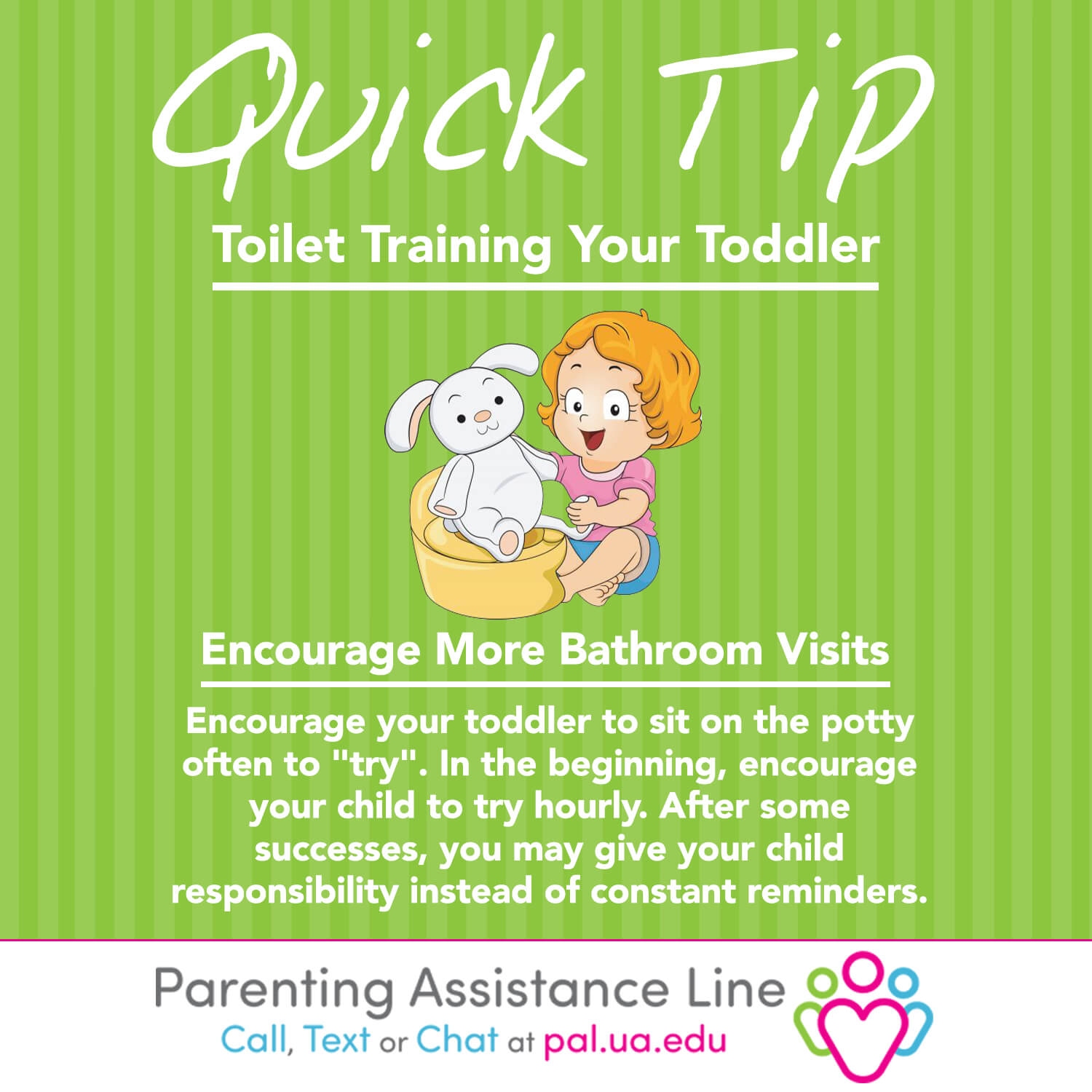Most parents begin their child’s potty training process around the age of two. Most children achieve daytime training by the age of three. Some children will train before age two while others could train as late as age four. It is important for parents to remember that every child is different. Relax and allow your child to let you know when he is ready. If your child feels pressured, potty training may be a long and stressful experience! With an attitude of patience, love, acceptance, and respect parents can make potty training a positive learning experience.
Signs of Readiness:
- Your child stays dry for 2-3 hours.
- Your child imitates your toileting practices showing interest in the potty.
- Your child asks to use the potty or wear regular underwear.
- Your child lets you know about soiled diapers (verbally, pulling at diaper, etc.) or pulls the soiled diaper off.
- Your child retreats to a quiet place and squats.
- Your child communicates the urge to urinate or have a BM.
- Your child is able to pull off clothes.
- Your child is in a positive phase.
While choosing a toilet training method that fits your family’s lifestyle, consider these helpful tips:
- Choose a potty seat that attaches to the toilet or a potty chair that is accommodating to the size of your toddler. He will feel safer and ownership of the potty.
- Allow your toddler to sit on his potty fully clothed to become comfortable. You could even read a book to add to his comfort.
- Boys should begin potty training in a seated position. Standing and “spraying” can be too much fun and messy.
- Encourage your toddler to sit on the potty often to “try”. In the beginning, encourage your child to try hourly. After some successes, you may give your child responsibility instead of constant reminders.
- Some children do not respond well to an hourly schedule. Perhaps a routine of regularly scheduled toilet times would be a better choice (first thing in the morning, before breakfast, before lunch, before nap, etc).
- Always praise success. Rewards or incentives can include a star or sticker chart to show your child’s progress . And don’t forget hugs, lots and lots of hugs!
- Never punish your child for accidents. (Sometimes children get engrossed in an activity and forget to go.) Instead, help them clean themselves and continue to encourage their potty endeavors.
- Do not strap your child to a potty chair or force your child to sit for long periods of time. Forcing your child to sit on the toilet or potty chair can be very traumatizing and could cause a fear of the toilet. This may cause more stress in the long run.
- Once your child is staying dry for several hours, introduce underwear. Go to the store together to pick them out or surprise your toddler with several pairs of a favorite color.
- Be patient with night training. Most children are not able to stay dry all night until age four, five or even six.
Potty training is often a trying time for parents. If you are experiencing frustration, you are not alone. Call the Parenting Assistance Line for encouragement and helpful hints.







